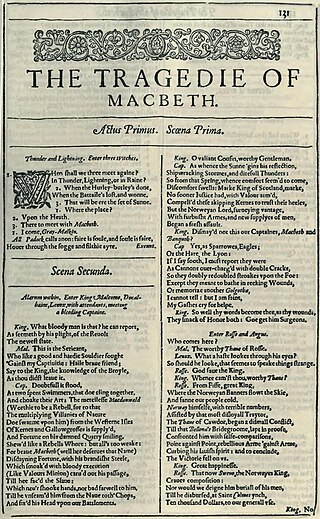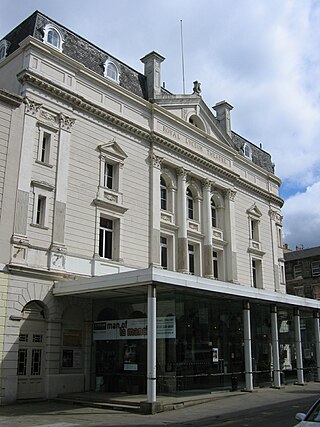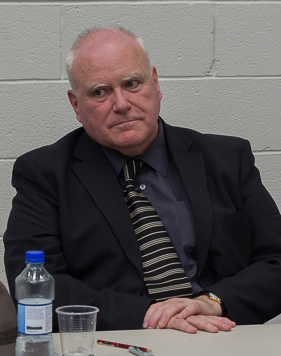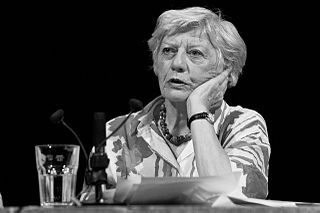Related Research Articles

Macbeth is a tragedy by William Shakespeare. It is thought to have been first performed in 1606. It dramatises the damaging physical and psychological effects of political ambition on those who seek power. Of all the plays that Shakespeare wrote during the reign of James I, Macbeth most clearly reflects his relationship with King James, patron of Shakespeare's acting company. It was first published in the Folio of 1623, possibly from a prompt book, and is Shakespeare's shortest tragedy.
Macbethad mac Findláech, nicknamed the Red King, was King of Scotland from 1040 until his death in 1057. He ruled during the period of Scottish history known as the kingdom of Alba.

Scottish literature is literature written in Scotland or by Scottish writers. It includes works in English, Scottish Gaelic, Scots, Brythonic, French, Latin, Norn or other languages written within the modern boundaries of Scotland.
The Scottish Renaissance was a mainly literary movement of the early to mid-20th century that can be seen as the Scottish version of modernism. It is sometimes referred to as the Scottish literary renaissance, although its influence went beyond literature into music, visual arts, and politics. The writers and artists of the Scottish Renaissance displayed a profound interest in both modern philosophy and technology, as well as incorporating folk influences, and a strong concern for the fate of Scotland's declining languages.
Stewart Conn is a Scottish poet and playwright, born in Hillhead, Glasgow. His father was a minister at Kelvinside Church but the family moved to Kilmarnock, Ayrshire in 1941 when he was five. During the 1960s and 1970s, he worked for the BBC at their offices off Queen Margaret Drive and moved to Edinburgh in 1977, where until 1992 he was based as BBC Scotland's head of radio drama. He was Edinburgh's first makar or poet laureate in 2002–05.

David Rintoul is a Scottish stage and television actor. Rintoul was born in Aberdeen, Scotland. He studied at the University of Edinburgh, and won a scholarship to study at the Royal Academy of Dramatic Art in London.

The Royal Lyceum Theatre is a 658-seat theatre in the city of Edinburgh, Scotland, named after the Theatre Royal Lyceum and English Opera House, the residence at the time of legendary Shakespearean actor Henry Irving. It was built in 1883 by architect C. J. Phipps at a cost of £17,000 on behalf of James B. Howard and Fred. W. P. Wyndham, two theatrical managers and performers whose partnership became the renowned Howard & Wyndham Ltd created in 1895 by Michael Simons of Glasgow.

Michelle Duncan is a Scottish-Canadian actress, known for Driving Lessons (2006), Atonement (2007) and The Broken (2008). She portrayed Shelley Stern in the biographical drama film Bohemian Rhapsody (2018).
Stephen MacDonald was a British actor, director and dramatist.

Theatre in Scotland refers to the history of the performing arts in Scotland, or those written, acted and produced by Scots. Scottish theatre generally falls into the Western theatre tradition, although many performances and plays have investigated other cultural areas. The main influences are from North America, England, Ireland and from Continental Europe. Scotland's theatrical arts were generally linked to the broader traditions of Scottish and English-language literature and to British and Irish theatre, American literature and theatrical artists. As a result of mass migration, both to and from Scotland, in the modern period, Scottish literature has been introduced to a global audience, and has also created an increasingly multicultural Scottish theatre.

Ronald Eaglesham Porter, known professionally as Ron Donachie, is a Scottish actor. He is known for starring as DI John Rebus in the BBC Radio 4 dramatisations of the Ian Rankin Rebus detective novels and for his supporting roles in films The Jungle Book (1994), Titanic and television series Doctor Who and Game of Thrones.

Literature in early modern Scotland is literature written in Scotland or by Scottish writers between the Renaissance in the early sixteenth century and the beginnings of the Enlightenment and Industrial Revolution in mid-eighteenth century. By the beginning of this era Gaelic had been in geographical decline for three centuries and had begun to be a second class language, confined to the Highlands and Islands, but the tradition of Classic Gaelic Poetry survived. Middle Scots became the language of both the nobility and the majority population. The establishment of a printing press in 1507 made it easier to disseminate Scottish literature and was probably aimed at bolstering Scottish national identity.

Scottish literature in the nineteenth century includes all written and published works in Scotland or by Scottish writers in the period. It includes literature written in English, Scottish Gaelic and Scots in forms including poetry, novels, drama and the short story.

Scottish literature in the eighteenth century is literature written in Scotland or by Scottish writers in the eighteenth century. It includes literature written in English, Scottish Gaelic and Scots, in forms including poetry, drama and novels. After the Union in 1707 Scottish literature developed a distinct national identity. Allan Ramsay led a "vernacular revival", the trend for pastoral poetry and developed the Habbie stanza. He was part of a community of poets working in Scots and English who included William Hamilton of Gilbertfield, Robert Crawford, Alexander Ross, William Hamilton of Bangour, Alison Rutherford Cockburn, and James Thomson. The eighteenth century was also a period of innovation in Gaelic vernacular poetry. Major figures included Rob Donn Mackay, Donnchadh Bàn Mac an t-Saoir, Uillean Ross and Alasdair mac Mhaighstir Alasdair, who helped inspire a new form of nature poetry. James Macpherson was the first Scottish poet to gain an international reputation, claiming to have found poetry written by Ossian. Robert Burns is widely regarded as the national poet.

Literature in modern Scotland is literature written in Scotland, or by Scottish writers, since the beginning of the twentieth century. It includes literature written in English, Scottish Gaelic and Scots in forms including poetry, novels, drama and the short story.
The Gateway Theatre was a Category C listed building in Edinburgh, Scotland, situated on Elm Row at the top of Leith Walk.

Willie Rough is a play by Scottish writer and director Bill Bryden, which is often regarded as a landmark of Scottish drama.
Jamie the Saxt is a four act play in Scots by the Scottish dramatist Robert McLellan. The play was first produced by Curtain Theatre in Glasgow in 1937 with the actor Duncan Macrae in the title role. The historical subject of the comedy is the conflict between the king of Scots, James VI, and Francis Stewart, the rebellious 5th Earl of Bothwell, in the early 1590s.
Bill Findlay was a Scottish writer and theatre academic. As a translator, editor, critic and advocate, he made an important contribution to Scottish theatre. He worked as a lecturer in the School of Drama at Edinburgh's Queen Margaret University and was a founder editor and regular contributor to the Scottish and international literature, arts and affairs magazine, Cencrastus.

Sue Glover is a Scottish playwright who has authored fictional works and adaptations for theater, radio and television. In the 1970s she worked with Zorina Ishmail Bibby in St. Andrews.
References
- ↑ "The Burning 1971 | The Lyceum | Royal Lyceum Theatre Edinburgh". lyceum.org.uk.
- ↑ Brown, Ian (20 October 2013). Scottish Theatre: Diversity, Language, Continuity. Rodopi. ISBN 9789401209946 – via Google Books.
- ↑ Pizzato, Mark (2 May 2019). Mapping Global Theatre Histories. Springer. ISBN 9783030127275 – via Google Books.
- ↑ Brown, Ian (24 September 2016). History as Theatrical Metaphor: History, Myth and National Identities in Modern Scottish Drama. Springer. ISBN 9781137473363 – via Google Books.
- ↑ Brown, Ian (16 May 2011). Edinburgh Companion to Scottish Drama. Edinburgh University Press. ISBN 9780748688371 – via Google Books.
- ↑ Brown, Ian (3 July 2009). Edinburgh Companion to Twentieth-Century Scottish Literature. Edinburgh University Press. ISBN 9780748636952 – via Google Books.
- ↑ The Burning / The Enchauntit Gairden theatre programme, Theatre Alba, August 2003